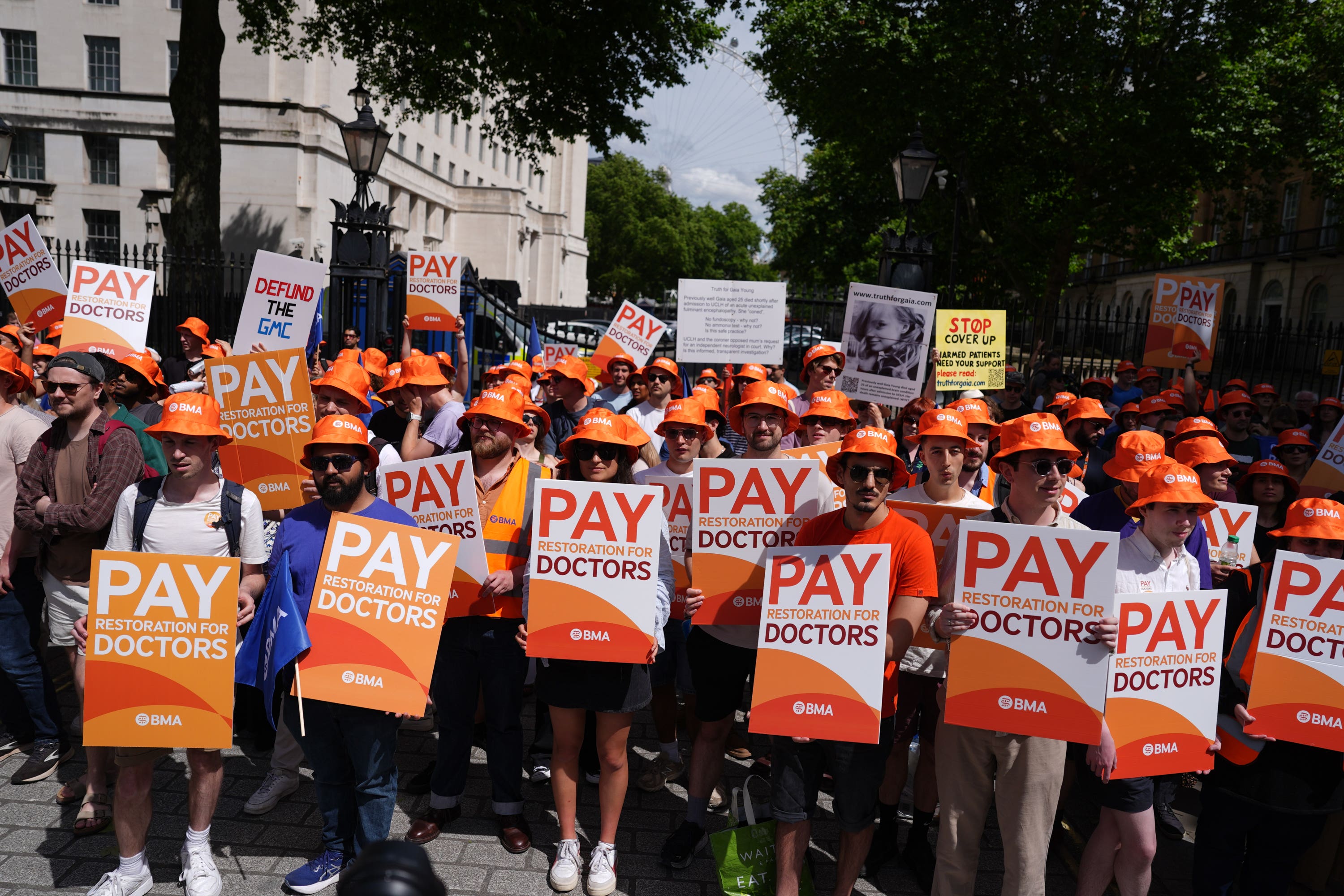Wes Streeting ‘optimistic’ ahead of pay talks with junior doctors
The new Health Secretary was speaking at the Tony Blair Institute.

Your support helps us to tell the story
From reproductive rights to climate change to Big Tech, The Independent is on the ground when the story is developing. Whether it's investigating the financials of Elon Musk's pro-Trump PAC or producing our latest documentary, 'The A Word', which shines a light on the American women fighting for reproductive rights, we know how important it is to parse out the facts from the messaging.
At such a critical moment in US history, we need reporters on the ground. Your donation allows us to keep sending journalists to speak to both sides of the story.
The Independent is trusted by Americans across the entire political spectrum. And unlike many other quality news outlets, we choose not to lock Americans out of our reporting and analysis with paywalls. We believe quality journalism should be available to everyone, paid for by those who can afford it.
Your support makes all the difference.The Health Secretary has said he is “optimistic” ahead of talks with junior doctors aimed at ending their long-running dispute over pay.
Wes Streeting said the talks mark an “important reset moment” in relations between the Government and junior doctors in England.
Medics from the British Medical Association (BMA) are to meet Department of Health and Social Care officials on Tuesday afternoon to start discussions with a view to ending strikes which have been causing widespread disruption across the health service.
Speaking at the Tony Blair Institute’s Future of Britain Conference 2024, Mr Streeting said: “I’m seeing the junior doctors this afternoon, they are coming into the Department of Health. I know they’re coming in not just from my diary, but from the army of cameras and journalists currently stationed outside the department.”
Asked if he was optimistic about the talks, he said: “Optimistic? Yes.
“This is an important reset moment in the relationship between junior doctors and their Government.”
Junior doctors in England say their pay has been cut by more than a quarter over the last 15 years and have called for a 35% increase.
But Labour has said it cannot afford to meet this demand.
Mr Streeting added: “In opposition, we were very clear that the headline 35% pay demand is not one that we could afford, and that has not changed since the General Election.
“The reason we were so blunt in opposition wasn’t simply about delivering a tough message, but about showing them the respect I think they are due, and a key ingredient of respect is honesty.
“Secondly, beyond pay, there are a whole range of issues about how junior doctors are treated by their employer which I am genuinely angry about – in terms of their placements, their rotations.
“The most egregious case I saw reported was a junior doctor whose wife had cancer, they had two kids, and there was no flexibility shown in where that family was placed, despite the obvious challenges of treatment and the obvious challenges of care.
“And when there was a public outcry, lo and behold, the situation was resolved.
“That is not an employer that is treating their staff well – so I think there are lots of issues we can make progress.”
The BMA’s junior doctors’ committee has said Labour comments about pay rises being a “journey and not an event” align with their pay restoration goals.
Health leaders urged the Government to resolve the dispute as a priority after NHS England said 61,989 appointments, procedures and operations had been postponed as a result of the latest walkout from June 27 to July 2.
The strike was the 11th by junior doctors in 20 months.
Since December 2022 there have been strikes across a number of staff groups in the NHS including nurses, other doctor groups, physiotherapists and paramedics.
Collectively this industrial action has led to nearly 1.5 million appointments, procedures and operations being postponed, at an estimated cost to the NHS of more than £3 billion.